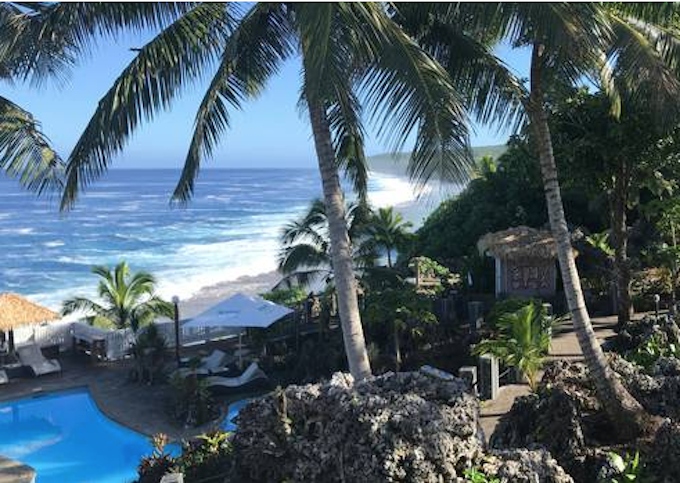
Pacific Media Centre Newsdesk
New Zealand’s “intransigence” over wanting to allow Australians in before New Zealanders out to the covid-free Pacific does not stand up to scrutiny, says a Cook Islands resort owner and doctor.
“If we unwittingly let the virus cross the Tasman, our country will take a huge hit,” says New Zealand-based John Dunn, a resort owner and visiting surgeon at Rarotonga Hospital.
Instead of concentrating on a possible travel bubble with Australia, New Zealand should be demonstrating “kindness” and offering a tourism economic lifeline to the Cook islands, Niue and Tokelau.

“Kindness was brilliantly promoted by Prime Minister Jacinda Ardern as a principle in the pandemic fight, alongside testing and tracing,” he wrote today in a guest column in The New Zealand Herald.
“Kindness can be misplaced, such as allowing infected people to travel the country. Alternatively, it could be used powerfully, by saving Pacific economies.
“The Cook Islands, Niue and Tokelau don’t feature in the UN list of member countries. That’s because they aren’t fully independent, existing in free association with New Zealand.
“While self-governing, their historical status means they depend on us in varying ways in matters like defence and foreign policy. And they are New Zealanders. We have real responsibility for them stemming from the colonial era.”
‘Malevolent engine’
Moreover, the Cook Islands, Niue and Tokelau are free of the “malevolent engine of SARS-Cov-2”.
“It has never penetrated these islands. The Cooks in particular have been conscientious and aggressive, testing 15 percent of the tiny population – all negative.”
Dunn praised the guidance of Dr Aumea Herman, the Cook Islands Secretary of Health, for this achievement.
“She is an internationally trained public health expert and has fiercely guarded the nation’s borders with the support of the government, shutting down one critical week earlier than New Zealand.”
Testing in other island nations had been patchy and reporting was unreliable, especially from those living under non-democratic regimes and with larger populations, he wrote in a clear reference to Fiji which has lately been pushing the idea of a “Bula bubble” with Australia and New Zealand.
“There exists, therefore, a strong argument to regard Rarotonga in the Cook Islands as a domestic destination and Prime Minister Henry Puna has made exactly that appeal.”
Dunn cited numbers such as only 15,000 people live in the 15 Cook Islands, mostly on Rarotonga and Aitutaki. (60,000 live in New Zealand).
Travel is economically vital
“Tourism represents 70 percent of GDP and 70 percent of the 170,000 annual visitors are from New Zealand. This travel is vital to the economy,” he wrote.
“At present Rarotonga is unnecessarily empty, the resorts are unnecessarily deserted and the airport – the lifeline – unnecessarily vacant. There is absolutely no danger in travelling there. Visitors are at more risk from a tsunami or cyclone.”
Dunn said that Prime Minister Ardern had stated she did not want to think about this issue until after a transtasman bubble was established. However, former prime minister Helen Clark had advocated opening to the islands at the same time as Australia.
“The argument that it is better for our economy to allow Australians in before New Zealanders out to the Pacific does not stand up to scrutiny,” wrote Dunn.
“Also, most of the New Zealand dollars spent in the Cook Islands return home via exports purchased and revenue for companies like our national carrier. Finally, the lesson from the GFC is that unemployment in the islands triggers a further diaspora to [New Zealand] which becomes a welfare load and further decimates the local population.
New Zealand should open up to selected Pacific nations now, wrote Dunn.
“To not do so is illogical and damaging. It makes more sense to keep New Zealand, and the Cook Islands, Australian-free while they still have active coronavirus.”











































